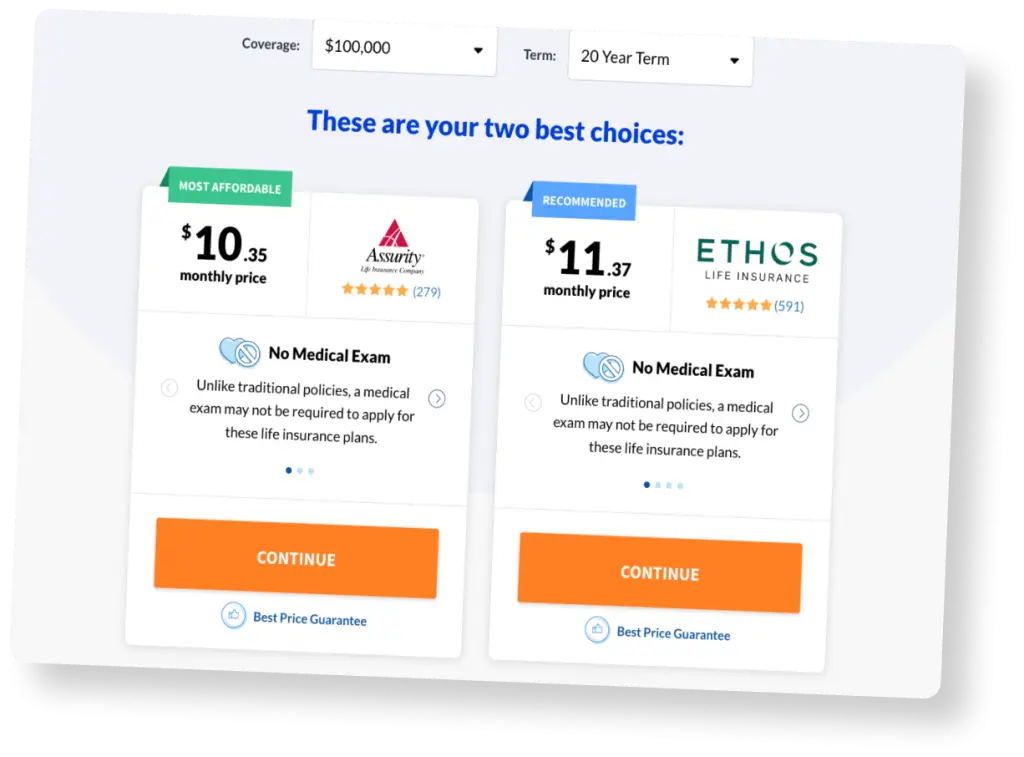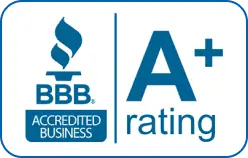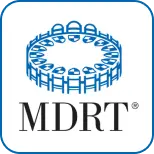Warning: When it comes to key man insurance taxation, you need to pay close attention to your key man life insurance policies and other employer-owned life insurance policies to ensure that the death benefits are not taxable! Important changes have taken place in the last few years that can significantly impact the taxation of key man and corporate-owned life insurance.
Make sure you read below to understand the changes and comply with the IRS requirements so the policy proceeds avoid needless taxation. There are advantages to owning this type of life insurance, but only when set up legally and properly.
Key Takeaways of Key Man Insurance Taxation
-
Employers must provide written notice and obtain written consent from the insured employee before issuing the policy, or the death benefit becomes taxable.
-
To keep death benefits tax deductible free, the insured must have been an employee within 12 months of death or a highly compensated employee when the policy was issued, or the death proceeds must go to qualified beneficiaries like family or a trust.
-
Employers must file IRS Form 8925 every year detailing insured employees, insurance amounts, and consent status to stay compliant.
-
Failing to follow notice, consent, and reporting requirements can result in the entire tax free death benefit being taxed as income.
The Pension Protection Act of 2006 and Key Man Insurance Taxation
On August 17, 2006, President George Bush signed tax legislation containing provisions that have widespread implications for key man insurance taxation and other employer-owned life insurance purchased after August 17, 2006.
The COLI Best Practices Act (which is part of the Pension Protection Act of 2006), includes the proposed IRC Section 101(j). Under this proposed law, life insurance death benefits of employer-owned life insurance policies issued after the effective date of August 17, 2006, are income taxable (to the extent the death benefit exceeds the employer’s premiums paid) unless certain requirements for an exception to taxation are met.
This tax law change applies to all employer-owned policies issued after August 17, 2006, and includes policies used for key person insurance, stock redemption, endorsement split dollar, Corporate Owned Life Insurance, and SERPs. It may also extend to collateral assignment (economic benefit) regime split-dollar and split-dollar loans.
Based on this law, all situations where an employer will have full or partial ownership of a life insurance policy issued after August 17, 2006, regardless of the purpose of the policy, will need to meet certain requirements and follow specific guidelines to avoid potential taxation.
How to Properly Avoid Key Man Insurance Taxation
In order to avoid key man insurance taxation and prevent the death benefit from being taxable income, either from improper setup or improper deductions, both of the following requirements must be met:
1. Notice and Consent Requirements:
a) The employee must be notified in writing, prior to the issuance of the life insurance policy, that the employer intends to insure his/her life and disclose what the maximum face amount that can be applied for on his/her life is;
b) The employee provides written consent to be insured under the policy and that the employer may choose to keep the policy in force even after the employee separates from services from the employer; and
c) The employee must be notified in writing that the employer is the beneficiary of all or part of the death benefit proceeds.
Unless the employer provides written notice and obtains the employee’s written consent prior to the issuance of the policy, the death benefit of the life insurance policy will be taxable from day 1. Notice and consent may not be obtained after the life insurance policy is issued to remove this taxable death benefit status.
In an effort to help customers meet these rules and regulations, many life insurance companies have created a special Employer Owned Life Insurance Form called a ” Notice and Acknowledgement of Consent to Life Insurance” which is provided at the time of application for key man and other corporate owned life insurance situations. This can be shared with legal and tax advisors to help make sure that correct reporting and disclosure is met.
2. Once the Notice and Consent Requirements are met, there are two exceptions to the rule taxing death proceeds payable to an employer, one of which must be met:
a.) Exception #1:
-
The insured was an employee at any time during the 12-month period before the insured’s death OR
-
The insured was a Director or “highly compensated employee” at the time the contract was issued.
b.) Exception #2:
Any amount received by the employer as a result of the insured’s death is paid to:
-
A family member of the insured;
-
A designated beneficiary of the insured under the contract other than the employer;
-
A trust established for the benefit of a family member, other designated beneficiary, or the insured’s estate; or
-
A family member, designated beneficiary, trust, or estate in exchange for any interest they hold in the corporation/employer (i.e. buy-sell agreement).
If both conditions above are met, key man life insurance proceeds would be received income tax-free if the policy death benefits would otherwise be eligible for favorable tax treatment.
trusted by 5,000+ clients
Get Personalized Quotes Tailored to Your Company’s Needs
Reporting Requirements for the COLI Best Practices Act
Employers are required to annually report all employer-owned life insurance arrangements to the IRS. The annual reporting requirements imposed under the IRC Sec. 6039I include:
-
The total number of employees at the end of the year;
-
The number of employees insured under the COLI arrangement at the end of the year;
-
The total amount of insurance in force on all insured employees at the end of the year; and
-
The employer’s name, address, taxpayer identification number and type of business, and
-
A statement of valid consent for each insured employee (or, if all required consents are not obtained, the number of insured employees for who consent was not obtained).
The IRS requires this reporting annually on Form 8925 ” Report of Employer-Owned Life Insurance Contracts.” It is a simple form and must be completed to comply with the IRS Code.
Also, an excerpt from the Federal Register Vol. 73, No. 216 contains additional details on reporting requirements for employer-owned life insurance policies issued after August 17, 2006.
If proper record keeping and reporting are not maintained, any and all key man life insurance policy proceeds or other corporate-owned life insurance death benefits may be subject to income taxation.
The Importance of Compliance in Financial Planning
Avoid Financial Impact
When it comes to key man insurance, compliance with tax regulations is crucial for maintaining the financial security of your business in case of the insured person dies. Proper financial planning ensures that term life insurance or permanent life insurance policies, provide the intended financial protection without triggering unexpected tax liabilities. Failure to meet IRS requirements, such as the Notice and Consent provisions, could result in the death benefit becoming taxable income, which would directly affect your company’s bottom line.
By following the necessary steps for compliance, businesses can avoid the tax implications that come with improperly structured key man life policies, ensuring that the death benefit remains tax-free. This compliance not only protects the business from lost profits or lost revenue due to a key employee passing but also helps maintain the cash value and insurance coverage in the event of a tragedy. Staying compliant with these rules supports business continuity, allowing the business to continue operations smoothly and providing financial protection for the company and its employees.
Frequently Asked Questions about Key Man Insurance Taxation
What is Key Man Insurance Taxation?
Key Man Insurance Taxation refers to the IRS rules that determine whether death benefits from employer-owned life insurance policies, such as those covering key employees, are subject to income tax. Under the Pension Protection Act of 2006 and IRC Section 101(j), if specific notice, consent, and reporting requirements are not met before issuing the policy, the death benefit may be taxed as income when paid to the employer. Proper setup and compliance are essential to ensure these proceeds remain generally tax free.
What Must an Employer Do Before Issuing a Key Man Insurance Policy to Avoid Taxation of the Death Benefit?
The employer must meet Notice and Consent requirements, which include notifying the employee in writing before the policy is issued, obtaining written consent from the employee to be insured, and informing the employee that the employer will be the policy’s beneficiary.
What Are the Two Exceptions That Can Allow The Death Benefit of a Key Man Policy to Remain Tax-Free?
Exception 1 is if the insured was an employee within 12 months prior to death or was a director or highly compensated employee when the contract was issued. Exception 2 is if the death benefit is paid to a family member, other designated beneficiary, a trust, or estate, especially in relation to a buy-sell agreement.
Conclusion and Summary of Key Man Insurance Taxation – How to Avoid it
Employer-owned life insurance policies including key man policies issued after August 17, 2006, may have death benefits that are subject to income taxation if certain requirements are not met.
The Pension Protection Act of 2006, which includes the COLI Best Practices Act, provides provisions that can have widespread implications for key man and/or other types of employer-owned life insurance purchased after August 17, 2006. You need to understand the Notice and Consent requirements, and well as the Exceptions and Record-Keeping and Reporting requirements, and comply with the IRS so the policy proceeds avoid needless taxation when they are paid out.
Unfortunately, if you have a key man policy issued after August 17, 2006, and you have not been compliant, your best bet to avoid potential income taxation is to scrap your current policy and start over!
¹ All of the above tax information is for information purposes only and is provided to explain the basic tax treatment of life insurance based on the Internal Revenue Code. Any individual or entity considering any life insurance policy should consult with their own CPA or tax/legal advisor that understands their particular tax circumstances and the rules governing their state. In no way is this information intended to be tax or legal advice.
¹ Death benefits on life insurance owned by a C Corporation may be subject to the corporate Alternative Minimum Tax (AMT). For more information, please consult your tax advisor.














